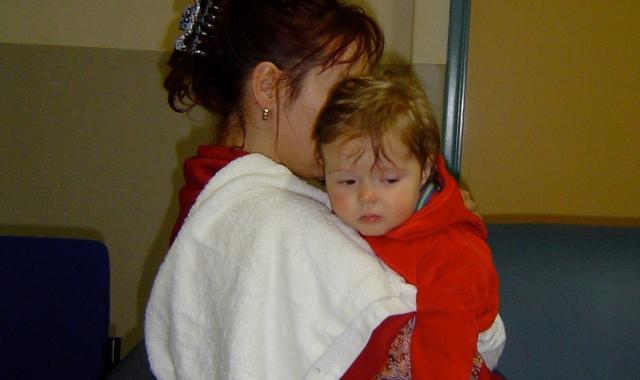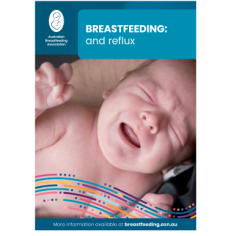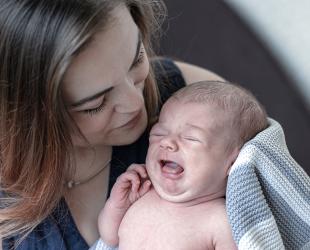Why do babies spit up milk? Learn what’s normal and how you can help your little one.

It’s normal for babies to bring up milk after a feed, and while it can be messy, it’s usually nothing to worry about. This is sometimes called spitting up, posseting, or simple reflux. Its official name is gastro-oesophageal reflux.
This spilling of milk happens when some of the milk in your baby’s stomach passes up into their oesophagus (food pipe—the tube that leads from the mouth to the stomach) and spills out their mouth. Most babies experience it, especially in the early months.
Why does it happen?
- Babies have a liquid diet and a short oesophagus and spend a lot of time lying down.
- The muscle at the top of the stomach, isn’t strong yet—think of a drawstring bag that doesn’t close all the way.
Reflux is more likely:
- when baby is lying down or picked up quickly after lying down.
- when their tummy is very full.
- when there is pressure from a tight nappy, clothing or seat belt.
- when baby is in a slumped or curled position.
- during nappy changes or in the bath.
- in premature babies.
Simple reflux
Many babies bring up some milk after a feed but aren't upset by it. Even if it happens several times a day, most babies gain weight well. Simple reflux usually stops as your baby grows.
It’s equally common in both formula-fed and breastfed babies, but formula-fed babies have episodes of reflux more often than breastfed babies and they last longer.
Is my baby bringing up too much?
Milk can look like a lot when it spreads everywhere but it’s unlikely your baby has lost the whole feed. It’s okay to offer another breastfeed straight away or you might find it helps to wait a bit before the next feed. If you’re unsure, check the signs your baby is getting enough.
What can I do to help?
- Keep your baby upright during and after feeds.
- Hold your baby gently on your shoulder after feeding.
- If you need to burp your baby, do so very gently, keeping their body straight.
- Use an upright baby carrier.
- When changing nappies, keep baby’s head higher than their body and roll their bottom sideways.
- Some babies do better with smaller, more frequent feeds. This puts less pressure on the muscle at the top of their stomach, so milk is less likely to come back up.
- For mums who make a lot of milk, try offering one breast per feed. If your baby wants another feed soon after, offer the same breast again.
- Other mums find their babies prefer larger feeds less often because reflux episodes are worse in the first hour after feeds.
Manage feeds
Your baby may do better with smaller feeds, more often. This puts less pressure on the muscle that closes off the top of their stomach, so milk is less likely to come back up.
Your baby may not want both breasts at each feed. They may vomit less if offered only one side but need feeding more often.
If you have a lot of milk, try giving your baby the same breast twice in a row when there is only a short gap between feeds. They can have the other breast a bit later.
Other mums find their babies prefer a larger feed less often because reflux episodes are worse in the first hour after feeds. These babies may prefer to feed from both breasts each feed and have a longer time between feeds.
Coping with the mess
Healthy babies who vomit can be hard work, emotionally and physically. The following suggestions may be helpful.
- Have towels or cloths handy for spills.
- Use large, soft bibs.
- Hold your baby upright and choose calm activities.
- Change your own clothes last before going out.
- Keep a bag of extra clothes, towels and wipes ready.
- Prepare for extra washing—an extra clothes airer or dryer can help.
Most babies grow out of simple reflux. It can be a tiring time for parents so seek support and try to take care of yourself.
Is my baby's reflux serious?
Reflux disease (Gastroesophageal Reflux Disease or GORD) a fairly rare medical condition and needs a doctor’s diagnosis. If you’re worried, talk to your healthcare provider.
My baby often hiccups. Should I be worried?
Many babies get hiccups especially if they bring up milk often. Hiccups usually don't bother babies and stop on their own. If your baby seems upset, try some of the above ideas or offer a breastfeed.
© Australian Breastfeeding Association November 2025
Find out more about reflux
Evidence-led info and practical tips from our Special Situation Information Series
Breastfeeding: and reflux



